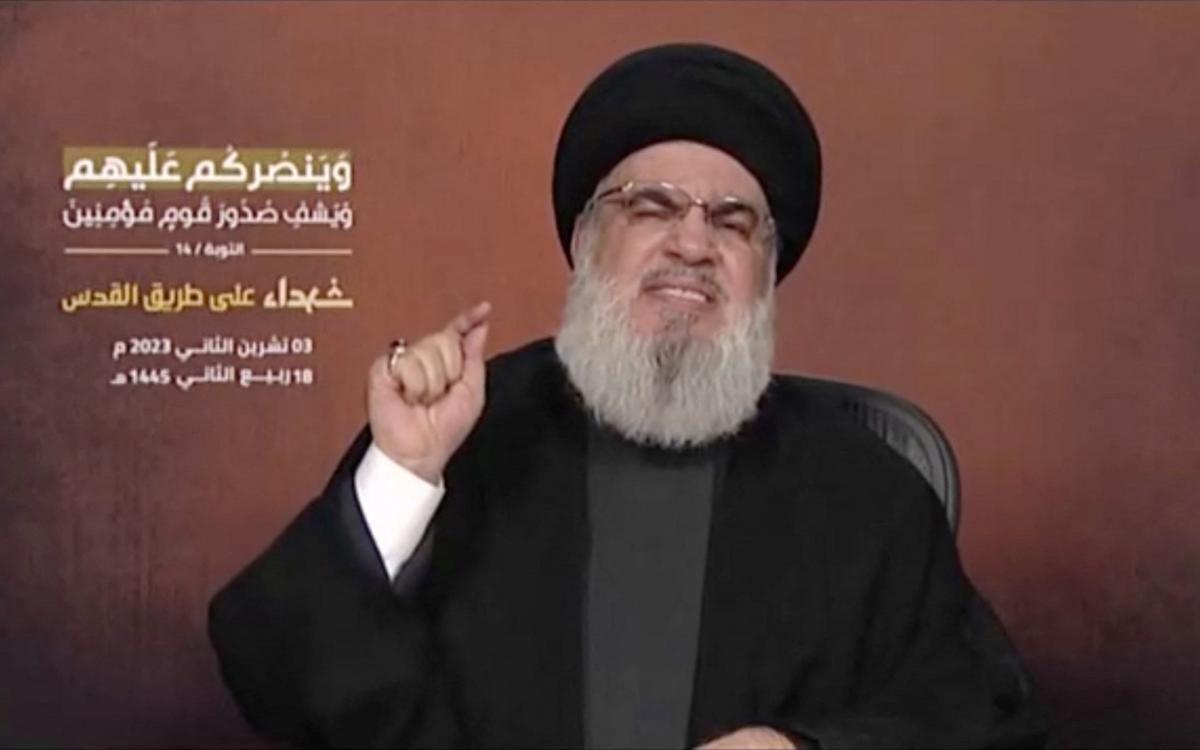There have not been many occasions like it, fewer still for the speech of an unelected cleric and militia leader.
Almost the entire Middle East stopped to tune in to the pronouncement of Hezbollah’s leader Hassan Nasrallah at 3pm on Friday.
Would he open a second front in the Israel-Hamas conflict, hurling the region into much wider conflagration, one that could in turn spark a new world war?
In East Jerusalem, the streets fell quiet during the hour-long speech, with only the rhythmic tones of Nasrallah’s voice emanating from thousands of mobile phones and radios.
In the end, as one social media wag noted, it was a “nothingburger”.
The Palestinian receptionist at my hotel breathed a deep sigh of relief, along with pretty much everyone else in the region.
That so much could hang on one man’s word is truly terrifying.
Arab street hanging on his every word
Nasrallah kicked off by distancing himself, Hezbollah and – most crucially – his paymaster, Iran, from having anything to do with the Oct 7 massacre.
It was “100 per cent Palestinian”, he said, and it was planned in “great secrecy”.
“This great, large-scale operation was purely the result of Palestinian planning and implementation”.
In short, “It had nothing to do with me, guv,” he seemed to be saying.
He was conscious the Arab street was hanging on his every word; an awkward position for someone who, at one and the same time, wants to be seen as flying the flag of the Palestinian cause, while avoiding the decimation Hamas has brought upon itself in Gaza.
He got around this with the (largely) rhetorical flourish of claiming he and his fighters had been involved in the war since day two.
And it’s true that skirmishes have been taking place in southern Lebanon between Israel and Hezbollah since Oct 8, but both sides have so far been careful not to escalate things into all-out war.
Nasrallah used another clever flourish to excuse himself from further involvement, lest his colleagues in Iran’s so-called “axis of resistance” feel let down.
“He said it was a war Israel can not win, something that signals Hezbollah’s intervention is not needed,” said Sima Shine, an Iran specialist and former Mossad intelligence officer.
Others at Israel’s Institute of National Security Studies where Shine now works noted that it also meant Nasrallah was, to some extent, “leaving his options open”.
‘Hezbollah is their nuclear option’
Overall, the speech seems to confirm conventional intelligence thinking in the region as regards Hezbollah and Iran.
That is to say, Iran does not want to lose its biggest and most powerful asset in the region, lest it be left without geopolitical leverage and a military deterrent against Israel.
“Iran has many proxies in the region but Hezbollah is their nuclear option”, as Shine puts it.
Not everyone will be breathing a sigh of relief, however.
Nasrallah said the attacks against US assets in Syria and elsewhere in the region would continue.
This, said Shine, was an indirect way of applying pressure on Israel for a ceasefire – something that might still just enable Hamas to survive as an Iranian proxy in Gaza.
Israel, however, seemed to anticipate that.
Just moments after Nasrallah wrapped up, Benjamin Netanyahu said Israel would not agree to a “temporary truce” without the release of all the hostages.



